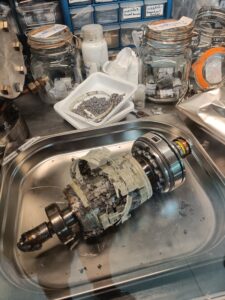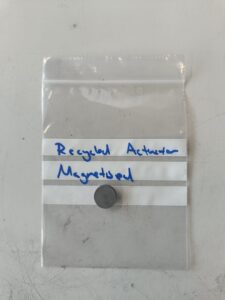Aatiqa Alidina
What is your current job / programme of study? 

PhD Student in Materials Science at the University of Birmingham
What A-Levels (or equivalent) did you do?
Chemistry, Physics, Maths, Economics
Why did you chose a career in Materials Science and Engineering (MSE)?
During the final year of my BSc Chemistry degree I ended up working on a project related to hydrogen storage materials. From there I realised that I was more inclined towards materials science rather than chemistry as it offered a nice balance between chemistry and physics. I then completed a MSc in Materials Science and was offered a PhD position during my final project.
What did you enjoy most about your MSE course? (If you didn’t do a MSE course which course did you do and what led to you MSE?)
I enjoyed the practicality of the course. Everything you learn has a real-life application which is easy to see in comparison to Chemistry which was a lot more theoretical.
What is your research about?
My research is about upgrading NdFeB magnets using a fairly new technique called grain boundary diffusion. These magnets are integral to applications like wind turbines and EVs but are very expensive. The aim of my research is to more efficiently use expensive heavy rare earth metals so that we can produce cheaper magnets which are strong enough for these applications.
What is the coolest thing you have done in your career so far?
During my final MSc project I recycled magnets from servo motors and I found that our current recycling technology can actually improve the magnetic properties of magnets that were manufactured 20+ years ago. This was considered a bit odd as recycled magnets tend to have high oxygen content but recent advancements in recycling technology seem to cancel out the effect of higher oxygen content.
What do you see yourself doing in the future?
Having just started my PhD I’m not quite sure yet but so far I am enjoying research and may aim to continue in the future.
What is your favourite material (and why)?
There are too many amazing materials to settle on one but NdFeB is definitely among the top few. NdFeB magnets are incredibly strong and are used in a lot of modern technology ranging from computer hard-disks to EVs.
What advice would you give your 16 year old self?
Always keep exploring things and ask a lot of questions! You never know what you might find interesting or what opportunities you may have access to if you never tried to move out of your comfort zone.

